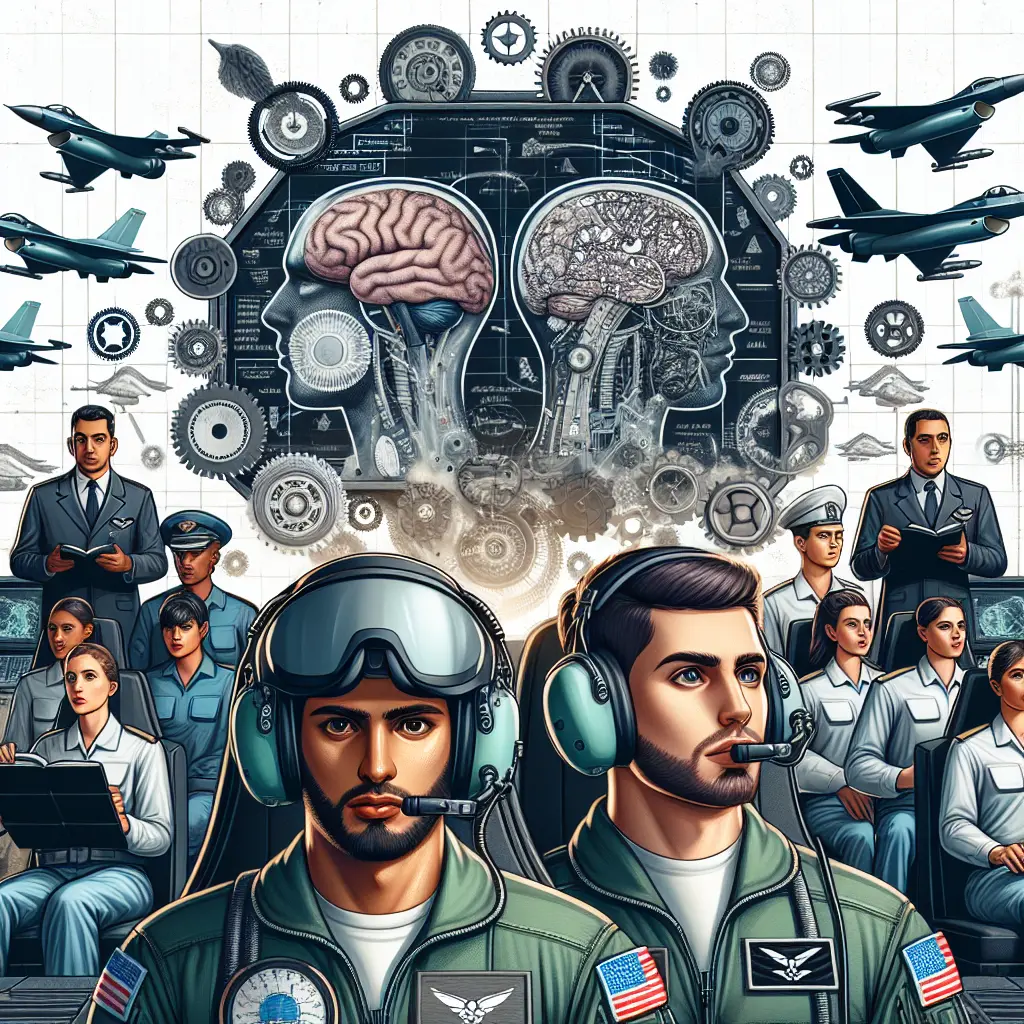
The unique psychological landscape of fighter pilot training is a fascinating blend of high-stakes decision-making, resilience, and mental preparation. In today's highly technical and stressful military environments, understanding the psychology behind fighter pilot training is essential. This exploration delves deep into the cognitive and psychological skills required, alongside recent advancements and contextual news to give a comprehensive overview.
Fighter Pilot Psychology and Military Training Psychology
Fighter pilots operate in environments where the stakes couldn't be higher. This necessitates a specialized form of military training psychology designed to enhance mental toughness and cognitive skills. According to the U.S. Air Force, the psychological training for pilots includes rigorous mental preparation aimed at optimizing decision-making capabilities and stress management (Air Force Portal). The integration of cognitive skills in aviation is crucial, as pilots must process information rapidly and accurately under immense pressure.
Fighter Pilot Stress Management
Managing stress is paramount in the cockpit of a supersonic jet. Fighter pilot stress management techniques are tailored to help pilots maintain calm and focus during high-intensity scenarios. Techniques such as tactical breathing, visualization, and biofeedback are regularly employed to help manage physiological responses to stress (National Center for Biotechnology Information).
Cognitive Skills in Aviation
Cognitive skills in aviation are critical, encompassing areas such as situational awareness, problem-solving, and decision-making. These skills are continuously honed through simulators and training exercises that replicate real-world scenarios pilots might face (Flight Safety Foundation).
Mental Toughness in Pilots
Mental toughness in pilots isn't just about handling fear; it's about persevering through exhaustion, uncertainty, and intense physical demands. Programs like resilience training for pilots are designed to build this mental toughness by challenging pilots with extreme stress scenarios and teaching them coping mechanisms (Journal of Aviation Psychology).
Psychological Training for Pilots
This specialized training focuses on enhancing a pilot's ability to function effectively under both psychological and physical strain. Techniques include cognitive-behavioral strategies to reinforce fighter pilot decision-making processes under duress (Society for Military Psychology).
Resilience Training for Pilots
Resilience training for pilots often involves scenarios that require quick adaptation and problem-solving skills. It's not only about bouncing back but also about thriving in an ever-changing environment (Military Medicine Journal).
Coping Mechanisms in Military Training
Adaptive coping mechanisms are essential in military training. These mechanisms help personnel manage emotional and psychological stress throughout their careers. Techniques can range from mindfulness to strategic disengagement (Department of Defense reports).
Mental Preparation for Fighter Pilots
Mental preparation goes beyond the cockpit; it starts long before a mission. It involves detailed briefings, study of enemy tactics, and mental rehearsals of missions. This preparation is crucial for effective performance and safety (Aerospace Medical Association).
Recent Updates and News Contextualization
Recently, SOCOM's quest for a lightweight machine gun with heavy firepower exemplifies the evolving battlefield technology and its implications on pilot operations (Defense News). Pilots must adapt to new technologies, which requires updated training regimes that incorporate these advancements into their psychological preparation.
Moreover, the remarkable performance by Women’s Team USA in sprint relay at recent athletics events underscores the significance of teamwork and mental coordination—qualities essential in military aviation (Sports Illustrated).
Conclusion
The psychology behind fighter pilot training is a complex field combining elements of cognitive psychology, stress management, resilience training, and more. As technology advances and the nature of conflicts evolves, so too must the psychological training for pilots. Understanding these elements helps ensure pilots are not only technically proficient but also mentally prepared for the challenges they face.
Thank you for joining me on this exploration into the fascinating world of fighter pilot psychology. The skies demand not only advanced machines but also exceptionally prepared minds.
Author: Carter Jennings